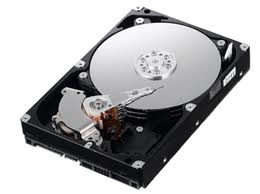| A | B |
|---|
| laptop | a portable computer small enough to use in your lap |
| desktop | a personal computer small enough to fit conveniently in an individual workspace |
| CPU/Processor | central processing unit - interprets and executes program instructions-the part of a computer that does most of the data processing- the brain of the computer- speed measured in gigahertz Ghz |
| operating system | The master software that controls hardware functions and provides a platform on top of which any software applications will run |
| RAM- memory | the most common computer memory which can be used by programs to perform necessary tasks while the computer is on- measured in gigabytes GB- more=faster |
hard drive-permanent storage,  | the mechanism that handles the reading, writing, and storage of data on the hard disk- measured in gigabytes GB- more= more room to store files |
| monitor | display consisting of a device that takes signals from a computer and displays them on a CRT screen |
| video card - graphics card | generates a feed of output images to a display on screen- also called graphics accelerators, can speed up both 2D and 3D graphics rendering |
| sound card | A device that can be slotted into a computer to allow the use of audio components for multimedia applications. |
| mouse | a hand-operated electronic device that controls the coordinates of a cursor on your computer screen as you move it around on a pad |
| keyboard | device consisting of a set of keys on a piano or organ or typewriter or typesetting machine or computer or the like |
| software | Instructions for the computer. A series of instructions that performs a particular task is called a "program." The two major software categories are "system software" and "application software"-Software tells the hardware how to process the data |
| tablet- computer | A general-purpose computer contained in a single panel -touch screen as the input device-operated by fingers and a stylus- examples: Ipad, Microsoft Surface, Samsung Galaxy, Amazon Kindle, Google Nexus |
| e-reader | A handheld device specialized for reading electronic books -one of the major advantages of e-book readers is their extremely long battery life- examples: Nook, Kindle, |
| system software | runs the computer - operating system |
| application software | runs the business - any program that processes data for the user - examples: Microsoft Office, games, |
| ultrabook | thin notebook computer -light weight - examples: MacBook Air, Lenovo Yoga. IdeaPad |
| netbook | low-cost, entry-level laptop computer - are very convenient for e-mail and Web surfing but are not suited for computation intensive tasks such as gaming and image editing -examples: Samsung Chromebook, IView- less RAM and hard drive space- no CD/DVD drive |
| terabyte | 1024 gigabytes |
| ROM | permanent data - example: operating system - you do not have access to this |
| external storage | secondary storage-usb/flash drive - external hard drive - network storage - the cloud -sd cards |
| input device | generates input for the computer -keyboard - mouse - touch screen - microphone- scanner |
| output device | presents output from the computer - printer - monitor- speaker |
| smartphone | cellular telephone with built-in applications and Internet access - digital voice service, provide text messaging, e-mail, Web browsing, still and video cameras, MP3 player and video playback and calling- run free and paid applications- mobile personal computer |
| the cloud | storage space on the internet or a network- Google drive - Dropbox - communication network |
| network storage | your home drive - student network - files are kept on a server |
| bluetooth | standard wireless personal area network- phones, tablets, car stereos |